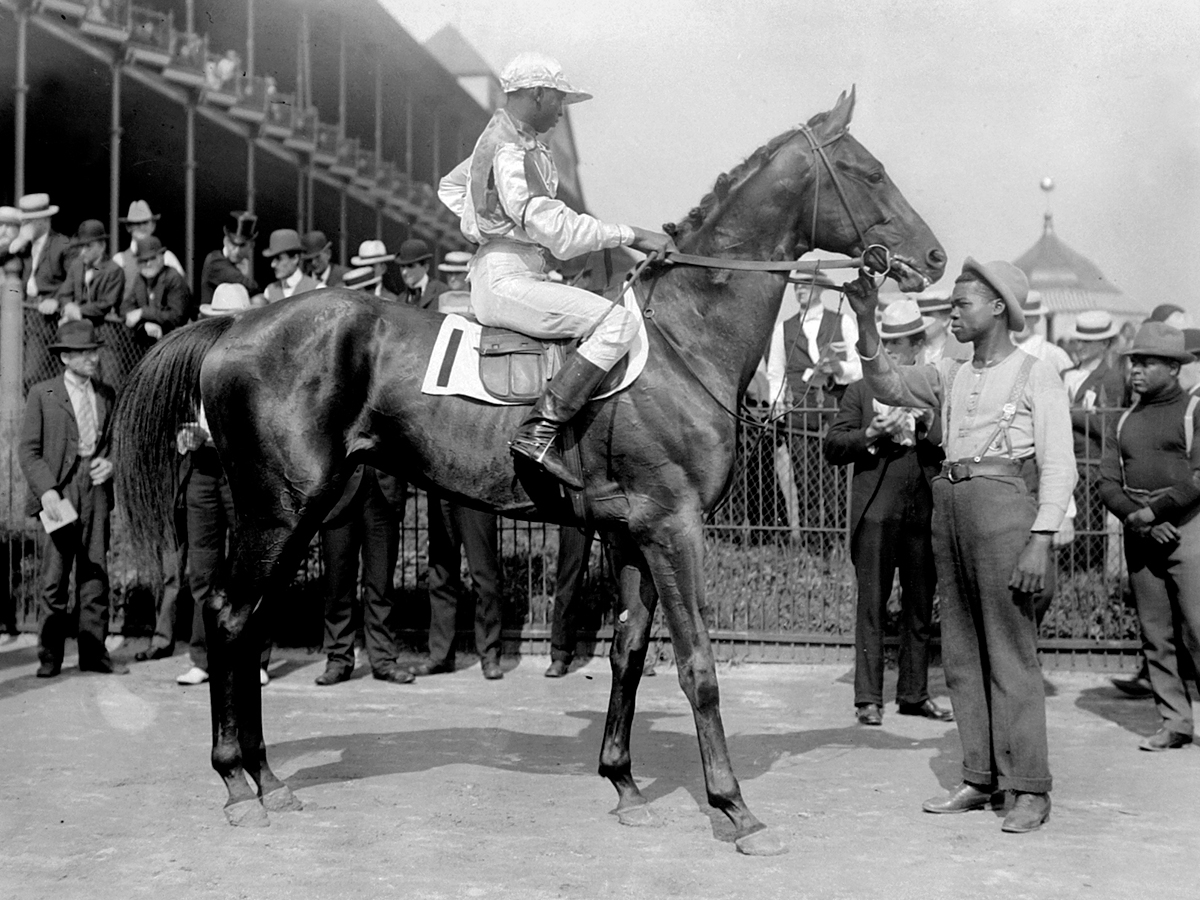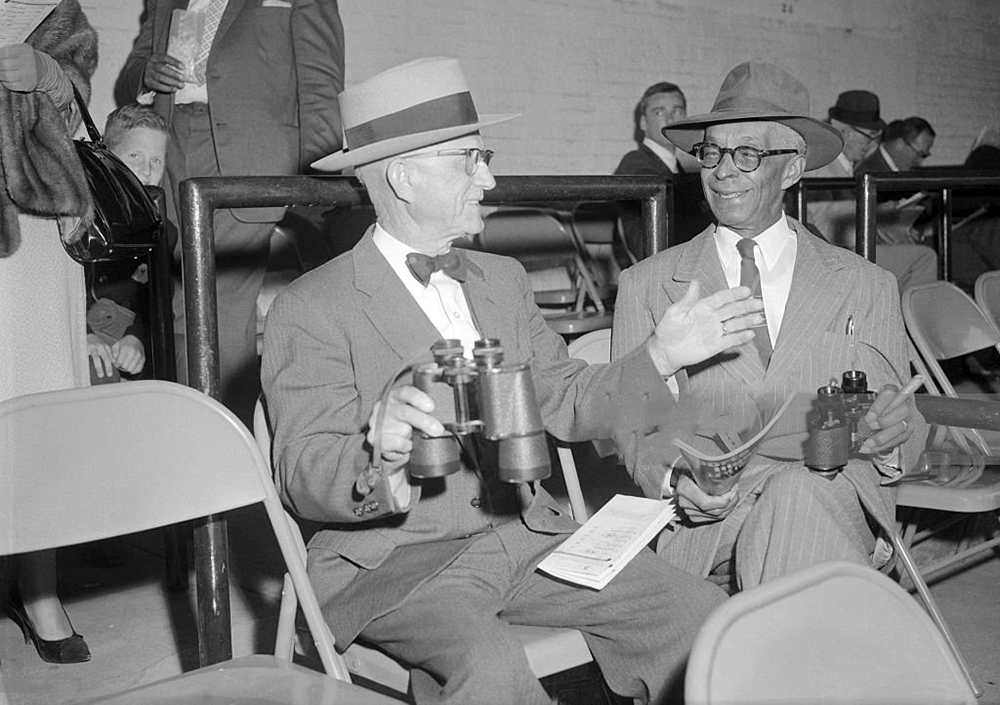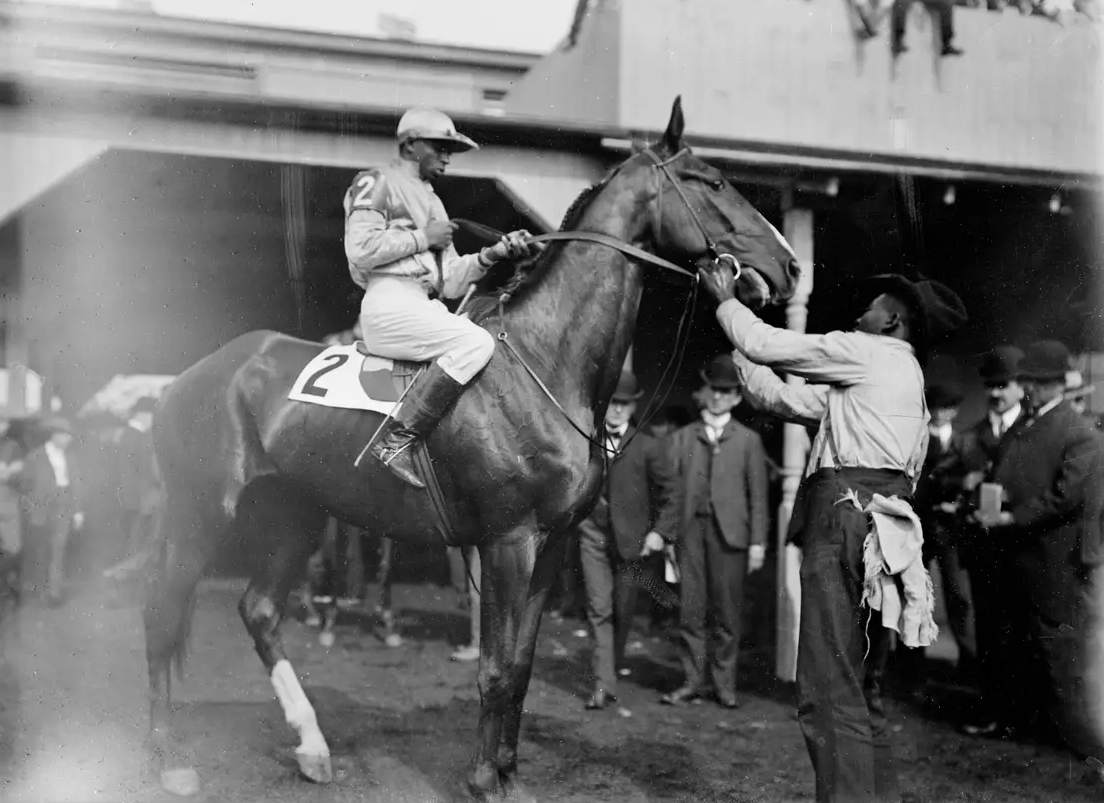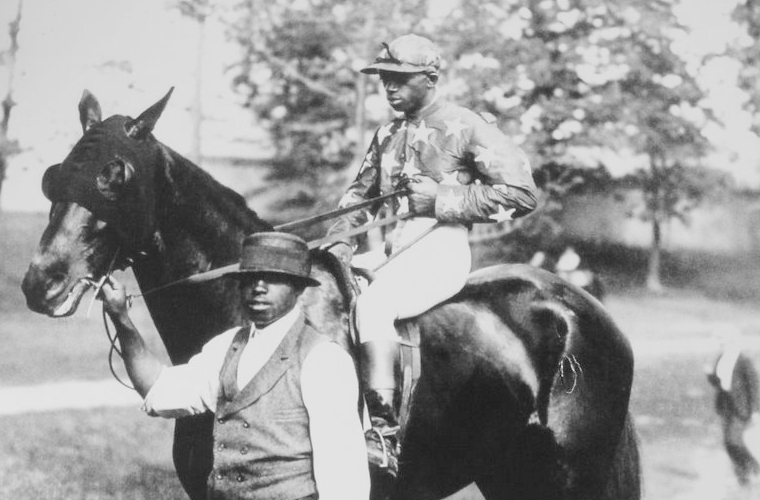Jimmy Winkfield was a legendary jockey and horse trainer who made history as the last African American to win the Kentucky Derby in 1902. He was also one of the most successful and adventurous riders of his era, winning races across Europe, Russia, and North Africa. Winkfield was born in Chilesburg, Kentucky, in 1882, the youngest of 17 children. His father was a sharecropper who worked on a farm that bred thoroughbreds. Winkfield grew up around horses and learned to ride at an early age. He started his career as a jockey in 1898, when he was 16 years old, at Chicago’s Hawthorne Racetrack. He soon proved his talent and skill, winning his first race in 1899.

In 1900, he rode in his first Kentucky Derby, finishing third on Thrive. The following year, he won the Derby on His Eminence, beating the favorite Lieutenant Gibson by three lengths. He also won the Clark Handicap, the Tennessee Derby, and the Latonia Derby that year, becoming one of the leading jockeys in the country. In 1902, he repeated his Derby triumph on Alan-a-Dale, edging out The Rival by a neck. He became the second jockey to win back-to-back Derbies, after Isaac Murphy, another African American rider who won in 1890 and 1891. Winkfield also matched Murphy’s record of three Derby wins (Murphy won his first in 1884).
Winkfield almost made history again in 1903, when he rode Early, the odds-on favorite, in the Derby. He led by a length and a half at the final turn, but was overtaken by Judge Himes and lost by three-quarters of a length. It was the closest he ever came to winning a third consecutive Derby, a feat that has never been achieved by any jockey.

Winkfield’s success came at a time when African American jockeys dominated the sport of horse racing. They won 15 of the first 28 Derbies, from 1875 to 1902. However, they also faced increasing racism and discrimination from white owners, trainers, jockeys, and fans. They were often subjected to threats, violence, boycotts, and exclusion from lucrative contracts and races.
Winkfield was no exception. He was blacklisted by some owners after he broke a contract with one of them to ride for another who offered him more money. He also had to deal with foul play from other jockeys who tried to block him or whip him during races. He decided to leave America and seek better opportunities abroad. In 1904, he moved to Russia, where he quickly became a star. He won many prestigious races there, including the Moscow Derby twice, the Russian Derby three times, the Russian Oaks five times, and the Czar’s Prize three times. He was also appointed as the personal jockey of Czar Nicholas II.

Winkfield lived a lavish lifestyle in Moscow, marrying a Russian baroness named Alexandra and having a son named George. He also owned a stable of horses and trained some of them himself. He was nicknamed “the Black Maestro” by his fans and admirers. However, his life changed dramatically after the Russian Revolution of 1917, which abolished horse racing and threatened his safety and wealth. In 1920, he fled Russia with a group of fellow trainers and owners, leading 260 horses across frozen terrain to Poland. Along the way, they faced bandits, wolves, hunger, and cold. Some of them died or were killed, and some of their horses were eaten or stolen.
Winkfield eventually settled in France, where he resumed his racing career. He won many important races there as well, such as the Prix du Président de la République twice,the Grand Prix de Deauville twice, and the Prix Eugène Adam once. He also raced in Germany where he won the Grosser Preis von Baden once, and in Morocco, where he won the Grand Prix de Casablanca once. He retired as a jockey in 1930, at the age of 48,having won more than 2,500 races in his career.
He then became a successful trainer, working for wealthy owners such as the Aga Khan and Marcel Boussac. He trained some notable horses, such as Cravat, who won the Critérium de Maisons-Laffitte in 1927, and Epigramme, who won the Prix de Diane in 1939. Winkfield married a second time, to a French woman named Lydia de Minkiwitz, with whom he had two more children, Robert and Liliane.
He lived on a farm near the Hippodrome de Maisons-Laffitte, where he continued to train horses until the outbreak of World War II.
During the war, he fled France again, this time to the United States, where he had not been for 36 years.
He was shocked by the segregation and discrimination he encountered there, especially in his home state of Kentucky. He was invited by Sports Illustrated to a reception at the Brown Hotel in Louisville in 1961, but he was told he could not enter by the front door. He returned to France after the war, where he was treated with respect and honor. He received several awards and recognitions for his achievements and contributions to horse racing, such as the Russian Champion Jockey Award three times, the French Legion of Honor in 1965,
and the National Museum of Racing and Hall of Fame induction in 2004 (posthumously).
He also had several races named after him, such as the Jimmy Winkfield Stakes at Aqueduct Racetrack in New York, and the Prix James Hennessy at Maisons-Laffitte in France. Winkfield died on March 23, 1974, at the age of 92, near Paris. He was buried at the Maisons-Laffitte cemetery, next to his second wife. He is remembered as one of the greatest jockeys and horsemen of all time, and as a pioneer and trailblazer for African Americans in sports.

